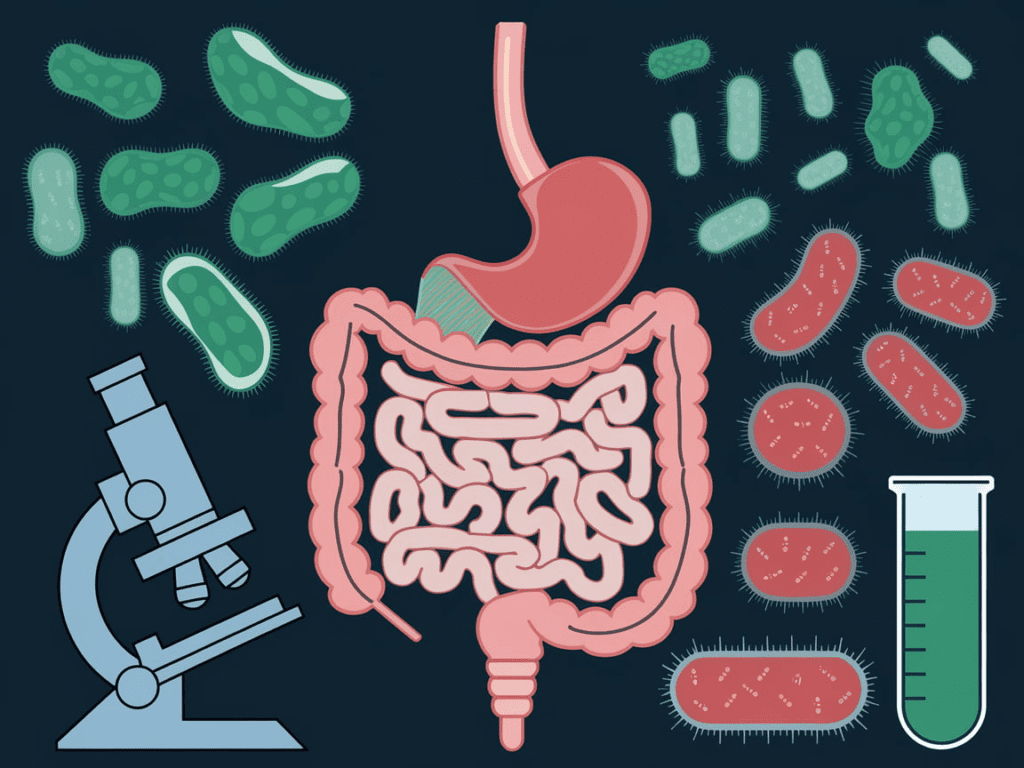Introduction
Gut health has become a hot topic in recent years, gaining attention from nutritionists, health enthusiasts, and researchers alike. The gut, often referred to as the “second brain,” plays a crucial role in our overall well-being. From digestion to immunity, the health of our gut can significantly impact various bodily functions. In this article, we will explore the importance of gut health and delve into the myriad benefits of probiotics, essential allies in promoting a healthy gut.
Understanding Gut Health

What is Gut Health?
Gut health refers to the balance and function of the microorganisms living in our digestive tract, primarily the intestines. This includes bacteria, viruses, fungi, and other microbes that make up the gut microbiome. A healthy gut microbiome is crucial for digestion, absorption of nutrients, and immune function. For more detailed information on the microbiome, check out this comprehensive resource from the National Institutes of Health.
Why is Gut Health Important?
- Digestive Function: A well-balanced gut microbiome aids in breaking down food, absorbing nutrients, and eliminating waste. Imbalances can lead to digestive disorders such as bloating, constipation, and irritable bowel syndrome (IBS).
- Immune System Support: Approximately 70% of our immune system resides in the gut. A healthy gut microbiome helps regulate immune responses and protects against infections and diseases. Learn more about this connection at the Mayo Clinic.
- Mental Health Connection: The gut-brain axis illustrates the connection between gut health and mental well-being. Gut bacteria produce neurotransmitters like serotonin, influencing mood and mental health. For further insights, visit the American Psychological Association.
- Weight Management: The gut microbiome can affect how we store fat and regulate hunger hormones, playing a role in weight management.
- Chronic Disease Prevention: A healthy gut may lower the risk of chronic diseases, including diabetes, heart disease, and certain cancers, by reducing inflammation and supporting metabolic functions.
The Role of Probiotics in Gut Health

What are Probiotics?
Probiotics are live microorganisms, primarily bacteria, that provide health benefits when consumed in adequate amounts. They are often referred to as “good” or “friendly” bacteria, as they help maintain the balance of the gut microbiome. You can explore the science behind probiotics in this article from Harvard Health.
Types of Probiotics
- Lactobacillus: Found in yogurt and fermented foods, helpful for digestion and may reduce diarrhea.
- Bifidobacterium: Common in dairy products, supports gut health and enhances immune function.
- Saccharomyces boulardii: A yeast probiotic that can help with digestive issues and restore gut flora.
How Probiotics Work
Probiotics work by:
- Restoring Balance: They can replenish beneficial bacteria that may be depleted due to antibiotics or poor diet.
- Enhancing Gut Barrier: Probiotics help strengthen the gut lining, preventing harmful bacteria from entering the bloodstream.
- Producing Short-Chain Fatty Acids: These compounds nourish gut cells and reduce inflammation.
- Competing with Pathogens: Probiotics can inhibit the growth of harmful bacteria and pathogens.
Benefits of Probiotics
- Improved Digestive Health: Probiotics can help alleviate common digestive issues like bloating, gas, and constipation. They enhance gut motility and balance gut flora, making digestion smoother.
- Enhanced Immune Function: Regular consumption of probiotics can bolster the immune system by promoting the production of antibodies and enhancing the activity of immune cells.
- Mental Health Benefits: Research suggests a link between gut health and mental health. Probiotics may help reduce symptoms of anxiety, depression, and stress by influencing the gut-brain axis.
- Weight Management: Some studies indicate that probiotics may aid in weight loss and fat reduction by regulating appetite hormones and influencing fat storage.
- Prevention of Antibiotic-Associated Diarrhea: Antibiotics can disrupt the balance of gut bacteria, leading to diarrhea. Probiotics can help restore this balance, reducing the likelihood of antibiotic-associated diarrhea.
- Reduced Risk of Chronic Diseases: A healthy gut microbiome may lower the risk of chronic conditions such as type 2 diabetes, cardiovascular diseases, and certain cancers by reducing inflammation and improving metabolic health.
Foods Rich in Probiotics
Incorporating probiotic-rich foods into your diet is an excellent way to support gut health. Here are some top choices:
- Yogurt: A popular source of probiotics, particularly if labeled “live and active cultures.”
- Kefir: A fermented dairy product that is even richer in probiotics than yogurt.
- Sauerkraut: Fermented cabbage that contains a variety of beneficial bacteria.
- Kimchi: A spicy Korean dish made from fermented vegetables, rich in probiotics.
- Miso: A fermented soybean paste used in Japanese cooking.
- Tempeh: A fermented soybean product that is a great plant-based protein source.
How to Choose Probiotics
When selecting a probiotic supplement, consider the following factors:
- Strain Specificity: Different strains of probiotics offer different benefits. Research the strains present in the product to ensure they align with your health goals.
- CFU Count: CFU stands for colony-forming units, indicating the number of viable microorganisms in a probiotic. A higher CFU count often correlates with greater efficacy.
- Delivery Method: Some probiotics require refrigeration to maintain potency, while others are shelf-stable. Choose one that fits your lifestyle.
- Reputable Brands: Look for well-established brands with positive reviews and transparency in their manufacturing processes.
Potential Side Effects of Probiotics
While probiotics are generally safe for most people, some may experience mild side effects, including:
- Gas and bloating
- Digestive discomfort
- Allergic reactions (in rare cases)
It’s always advisable to consult with a healthcare provider before starting any new supplement, especially for those with underlying health conditions or compromised immune systems.
FAQs about Gut Health and Probiotics
- What are the signs of poor gut health? Signs of poor gut health may include digestive issues (bloating, gas, constipation), frequent infections, fatigue, skin issues, and mood changes.
- How long does it take for probiotics to work? The effects of probiotics can vary based on individual circumstances and the specific strains used. Some may notice improvements within a few days, while others might take weeks.
- Can I get enough probiotics from food alone? Yes, consuming a variety of probiotic-rich foods can provide sufficient amounts of beneficial bacteria. However, supplements can be helpful for specific health issues.
- Are probiotics safe for everyone? Probiotics are generally safe for healthy individuals. However, those with compromised immune systems or serious health conditions should consult a healthcare professional.
- Can probiotics help with weight loss? Some studies suggest that certain probiotic strains may aid in weight loss and fat reduction, although more research is needed to fully understand this relationship.
- How should I store probiotic supplements? Follow the storage instructions on the label. Some probiotics require refrigeration, while others are shelf-stable.
Conclusion
Gut health is fundamental to overall well-being, influencing digestion, immunity, mental health, and more. Probiotics play a vital role in maintaining a balanced gut microbiome, offering a plethora of health benefits. By incorporating probiotic-rich foods and, if necessary, supplements into your diet, you can support your gut health and improve your quality of life. Remember, a healthy gut can lead to a healthier you!



